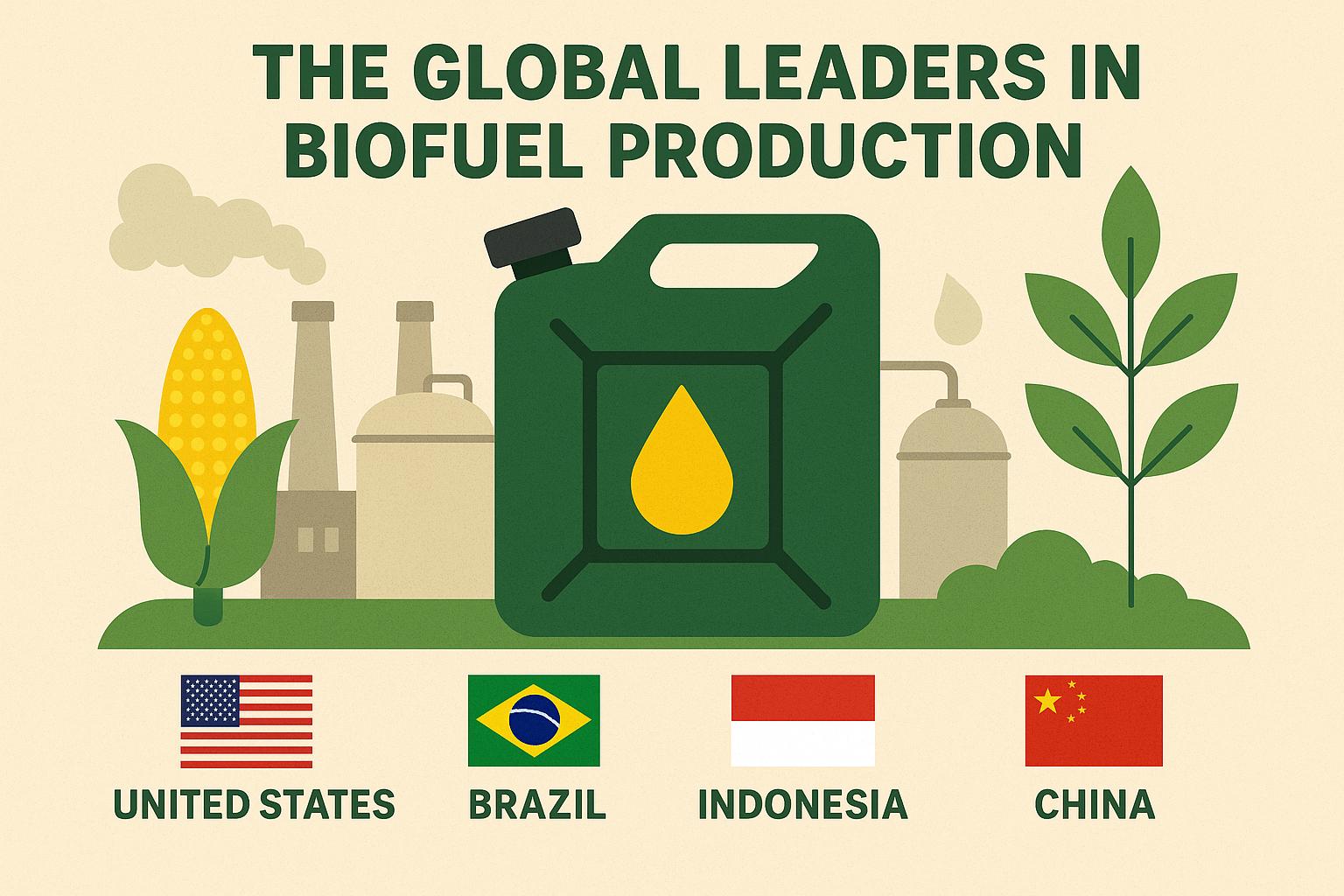The Role of Biofuels in Global Energy
In recent years, the global energy landscape has undergone significant transformations, with biofuels emerging as a key component in the drive to reduce dependence on fossil fuels and address the challenges of climate change. By utilizing renewable biological resources, biofuels provide a sustainable solution that can contribute to energy security, economic development, and environmental protection. This article delves into the role of biofuels and highlights the initiatives of key nations at the forefront of biofuel production.
The United States: Leading the Charge
The United States has established itself as a dominant force in biofuel production, largely due to its significant investments in technology and supportive infrastructure. The country has capitalized on its abundant agricultural resources, particularly corn, to produce large quantities of ethanol, which is a prevalent type of biofuel. This initiative is not just about harnessing available resources but also involves a concerted effort by governmental bodies like the U.S. Department of Energy. The department has laid out various incentives and programs to stimulate research and encourage innovation in the biofuel sector, positioning the U.S. at the forefront of this industry.
One of the pivotal aspects of the U.S. biofuel strategy is the Renewable Fuel Standard (RFS), a federal program that mandates the incorporation of renewable fuels into the country’s fuel supply. This program has been crucial in driving demand for biofuels and promoting their integration into the mainstream energy market. Moreover, advancements in technology have facilitated the production of cellulosic ethanol from plant materials that were previously not used for fuel, further diversifying the range of biofuels available.
Brazil: Leveraging Sugarcane for Ethanol
Brazil stands as a prominent example of how national conditions and strategic planning can be harnessed to become a leader in biofuel production. The country’s utilization of sugarcane as a primary feedstock for ethanol production is a testament to its favorable tropical climate and comprehensive investment in biofuel technology over several decades. The ethanol derived from sugarcane is not only energy-efficient but also generates lower greenhouse gas emissions compared to traditional fossil fuels.
In Brazil, the biofuel industry is heavily regulated and promoted by organizations such as the National Petroleum Agency, which ensures that the sector meets both growth targets and sustainability criteria. This regulatory environment has facilitated Brazil’s ability to provide substantial amounts of ethanol, not only for domestic consumption but also for export. The country’s biofuel strategy has had a significant impact on reducing its greenhouse gas emissions and improving its energy independence.
The European Union: A Collective Effort
Within the European Union, biofuel production is characterized by a collaborative approach among its member states. The EU’s focus is on promoting biodiesel, primarily produced from rapeseed oil, as part of its broader commitment to renewable energy targets. The European Commission plays a central role in this endeavor, implementing policies that encourage increased generation and consumption of biofuels across Europe.
The EU’s commitment to reducing carbon emissions and enhancing energy security drives its biofuel strategy. Initiatives such as the Renewable Energy Directive (RED) set binding targets for renewable energy use, thus incentivizing member states to invest in biofuel technologies. Europe’s approach also involves strict sustainability criteria, ensuring that biofuel production does not negatively impact biodiversity or contribute to deforestation. Despite facing challenges such as feedstock supply and competition from other sectors, the EU remains steadfast in its pursuit of a sustainable energy future.
Emerging Trends in Asia
In Asia, major economies like China and India are increasingly recognizing the potential of biofuels as a sustainable energy source. Both countries have embarked on ambitious plans to develop their biofuel industries, leveraging non-edible crops and agricultural waste to augment their capabilities. This approach minimizes the impact on food supply and aligns with sustainability targets.
China, for instance, is actively promoting the production of biodiesel from waste oils and fats, particularly in urban areas where such resources are readily available. Government initiatives aim to stimulate growth in the biofuel sector through policies and subsidies that support technological advancements and commercialization efforts. Similarly, India is investing in research to utilize non-food crops such as jatropha and algae, with the goal of reducing its dependency on crude oil imports.
Challenges and Opportunities
The advancement of biofuel production is not without its challenges. Debates continue to surface about the “food versus fuel” issue, with concerns that the diversion of crops for biofuel production could affect global food supplies. Additionally, the environmental impact of land use changes and the energy expenditure involved in biofuel production are topics of ongoing evaluation.
Despite these challenges, the biofuel sector also presents numerous opportunities for innovation and development. Technological developments are paving the way for the creation of next-generation biofuels that utilize non-food sources like algae and other novel materials. These advancements hold the potential to revolutionize the industry by offering more efficient and sustainable production methods.
Conclusion
In conclusion, the contributions of leading nations in biofuel production play a pivotal role in shaping the future of sustainable energy. Each country, with its unique resources and policies, showcases how biofuels can be integrated into national energy strategies. The combined efforts of policy frameworks, technological innovations, and international cooperation are essential in addressing current challenges and maximizing the potential of biofuels on the global energy stage. As the world continues to seek sustainable energy solutions, biofuels will undoubtedly remain a crucial element of the energy mix, driving forward a more sustainable future.


